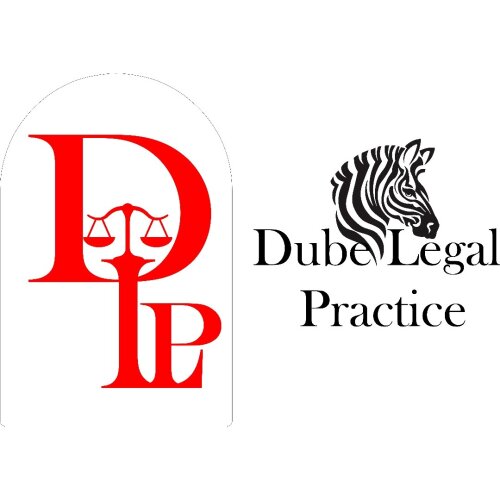Best Renewable & Alternative Energy Lawyers in Bulawayo
Share your needs with us, get contacted by law firms.
Free. Takes 2 min.
List of the best lawyers in Bulawayo, Zimbabwe
About Renewable & Alternative Energy Law in Bulawayo, Zimbabwe
In recent years, Bulawayo has seen increased interest and investment in renewable and alternative energy sources such as solar, wind, and biogas. This is primarily due to the need for reliable electricity supply, environmental sustainability, and government incentives to reduce dependence on traditional fossil fuels. Renewable & Alternative Energy Law in Bulawayo covers the regulatory frameworks, permits, incentives, and policies designed to manage and promote clean energy production and use. Navigating these regulations is essential for businesses, individuals, and organizations seeking to develop, invest in, or utilize renewable energy solutions.
Why You May Need a Lawyer
Legal assistance in the field of renewable and alternative energy can be crucial in various situations. Common reasons to seek a specialized lawyer include:
- Obtaining permits and licenses for energy projects or installations
- Understanding and complying with local, national, and environmental regulations
- Negotiating power purchase agreements or land leases for energy infrastructure
- Resolving disputes involving contracts, property rights, or regulatory compliance
- Assisting with financing, investment structuring, and risk assessment
- Advising on government incentives, subsidies, or tax benefits
- Protecting intellectual property related to technological innovations
- Facilitating partnerships or joint ventures with other stakeholders
Local Laws Overview
Several legal frameworks shape the renewable and alternative energy landscape in Bulawayo and Zimbabwe as a whole:
- The Energy Regulatory Authority Act establishes the Zimbabwe Energy Regulatory Authority (ZERA), which regulates energy projects, issues licenses, and sets standards for generation, transmission, and distribution.
- The Electricity Act regulates electricity generation, encourages private investment, and ensures that energy providers are licensed and comply with safety and environmental standards.
- The Environmental Management Act requires environmental assessments and permits for larger projects to prevent negative impacts and ensure sustainability.
- Local municipal by-laws in Bulawayo may regulate rooftop solar installations, waste management for biogas projects, and construction standards for alternative energy facilities.
- National Renewable Energy Policy provides a roadmap for increasing renewable energy integration and includes incentives and targets for solar, wind, small hydro, and biogas expansion.
Failure to comply with these laws can result in fines, project delays, or legal disputes, reinforcing the importance of specialized legal advice.
Frequently Asked Questions
What qualifies as renewable or alternative energy in Bulawayo?
Renewable and alternative energy sources include solar, wind, biomass, biogas, small hydro, and other technologies that provide sustainable and clean alternatives to traditional fossil fuels.
Do I need a permit to install solar panels on my home or business?
Yes, most installations require local municipal approval and must comply with national and city regulations regarding safety and grid integration.
Who regulates renewable energy projects in Bulawayo?
The Zimbabwe Energy Regulatory Authority (ZERA) is the main body overseeing licensing and regulatory compliance for energy projects.
Are there government incentives for renewable energy investment?
There are various incentives, including duty exemptions on certain equipment, tax benefits, and feed-in tariffs for eligible projects, depending on the scale and type.
What environmental regulations apply to renewable energy projects?
Projects, especially larger ones, must undergo environmental impact assessments and meet requirements set by the Environmental Management Agency (EMA).
Can I sell excess electricity generated from my solar panels?
Selling excess power back to the grid, known as net metering, is possible in some situations but requires approval and a power purchase agreement with the utility.
What happens if I do not comply with local regulations?
Failure to follow regulations can result in fines, shutdown of operations, or legal action from authorities or affected parties.
How are land rights and use handled for renewable energy projects?
Land acquisition or lease agreements must comply with local by-laws, and often require community consultations and municipal approvals.
Can foreign investors participate in renewable energy projects?
Foreign investors can participate, but must comply with licensing, investment laws, and sometimes indigenization policies depending on project size and industry.
What legal documents are needed for a renewable energy project?
Documents may include land use agreements, power purchase contracts, environmental permits, technical licenses, and business registrations.
Additional Resources
If you need more information or support, consider reaching out to these organizations and government bodies:
- Zimbabwe Energy Regulatory Authority (ZERA)
- Environmental Management Agency (EMA)
- Ministry of Energy and Power Development
- Bulawayo City Council
- Solar Industry Association of Zimbabwe
- ZimTrade for business and investment guidance
- Zimbabwe Electricity Supply Authority (ZESA)
- Local law societies and legal aid clinics
Next Steps
If you are considering a renewable or alternative energy project or are facing legal challenges in this sector, take the following steps:
- Clearly define your energy goals and determine the type and scale of your project
- List any regulatory or compliance questions you may have
- Engage a qualified local legal practitioner with experience in energy law
- Consult relevant government agencies early in your planning process
- Obtain all required permits, licenses, and approvals before beginning work
- Ensure your contracts, agreements, and documentation are legally sound
- Stay informed about any policy or regulatory changes affecting the sector
By seeking timely legal guidance and understanding the regulatory framework, you can protect your interests, avoid costly missteps, and help advance renewable energy in Bulawayo sustainably.
Lawzana helps you find the best lawyers and law firms in Bulawayo through a curated and pre-screened list of qualified legal professionals. Our platform offers rankings and detailed profiles of attorneys and law firms, allowing you to compare based on practice areas, including Renewable & Alternative Energy, experience, and client feedback.
Each profile includes a description of the firm's areas of practice, client reviews, team members and partners, year of establishment, spoken languages, office locations, contact information, social media presence, and any published articles or resources. Most firms on our platform speak English and are experienced in both local and international legal matters.
Get a quote from top-rated law firms in Bulawayo, Zimbabwe — quickly, securely, and without unnecessary hassle.
Disclaimer:
The information provided on this page is for general informational purposes only and does not constitute legal advice. While we strive to ensure the accuracy and relevance of the content, legal information may change over time, and interpretations of the law can vary. You should always consult with a qualified legal professional for advice specific to your situation.
We disclaim all liability for actions taken or not taken based on the content of this page. If you believe any information is incorrect or outdated, please contact us, and we will review and update it where appropriate.









